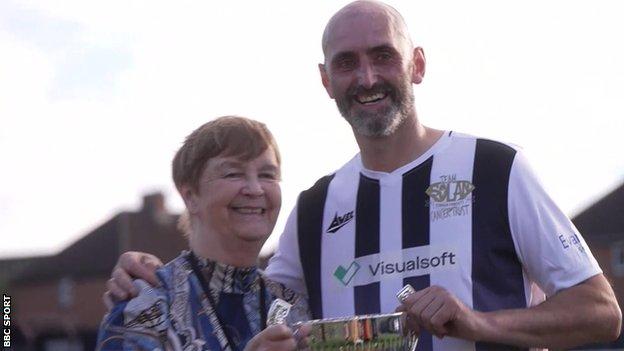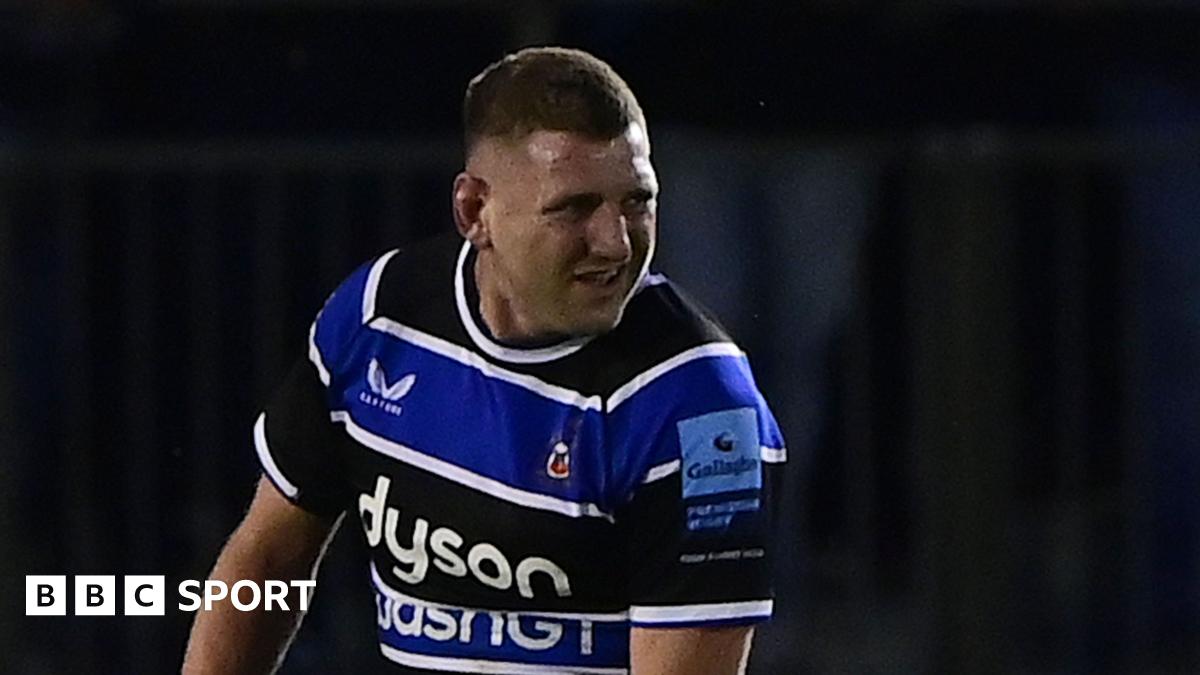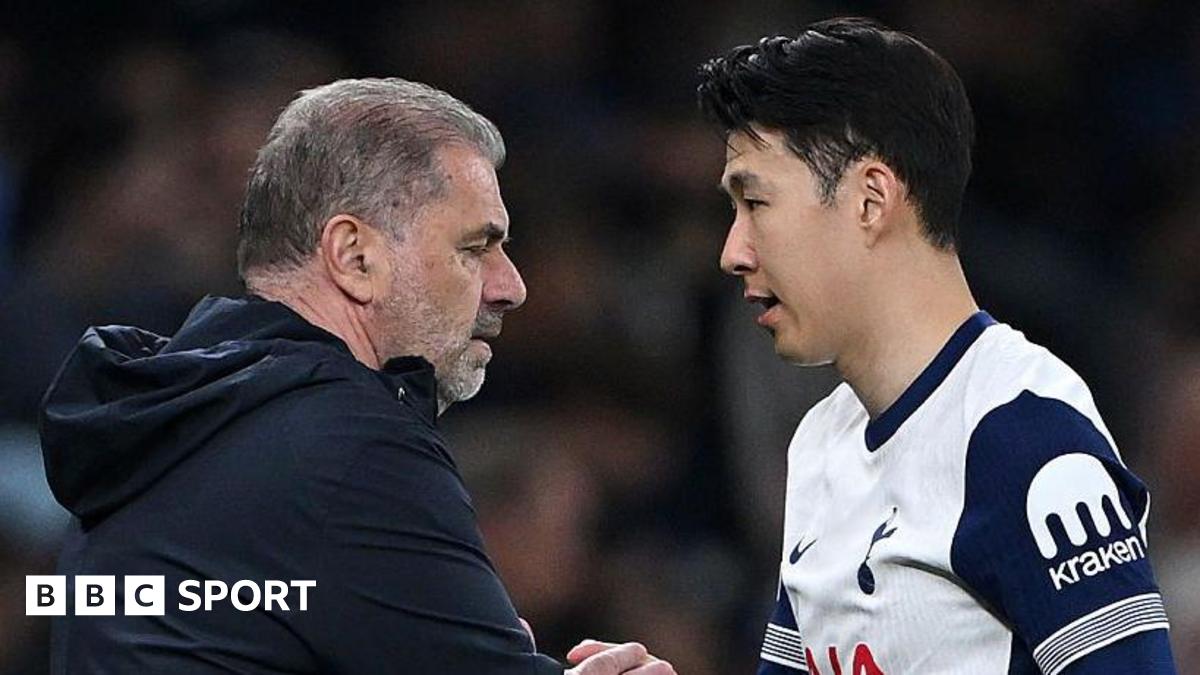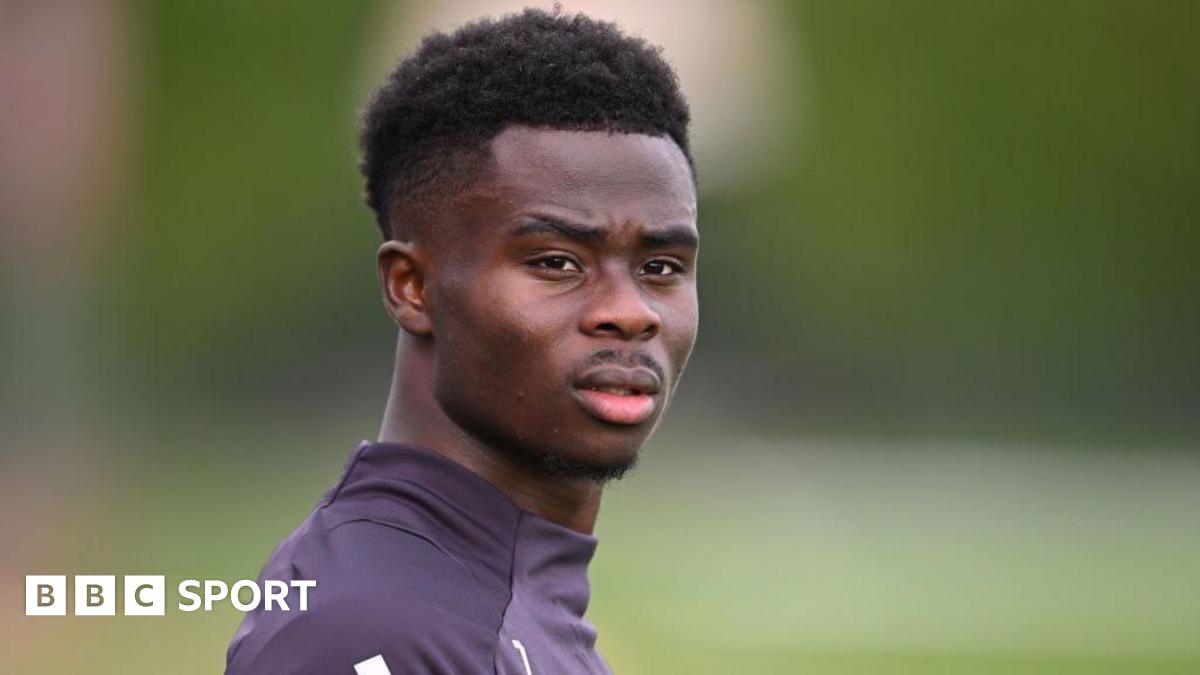ARTICLE AD BOX
 Dr Judith Gates, pictured with one of the team captains Mark Solan, arranged the game. Her husband Bill Gates, a former Middlesbrough defender, was diagnosed with dementia in 2014
Dr Judith Gates, pictured with one of the team captains Mark Solan, arranged the game. Her husband Bill Gates, a former Middlesbrough defender, was diagnosed with dementia in 2014Football has long been described as a simple game - played with the feet, won with the head. But what happens when you literally can't use your head?
Spennymoor Town's Brewery Field in the north-east of England was the venue for a landmark game this weekend. A crowd of just over 300 people witnessed an historic moment in British football as the first adult 11-a-side football match with heading restrictions took place to raise awareness of the risk of dementia in players.
In the first half players were only allowed to head the ball inside the 18-yard box. For the second half of the match heading the ball was banned anywhere on the field.
The two teams were made up of current and former professional footballers.
Dr Judith Gates created the charity organisation Head for Change and was responsible for arranging the game. Her husband Bill Gates, a former Middlesbrough defender, was diagnosed with dementia in 2014.
Now aged 77, he was forced to retire at 29 after regularly suffering migraines.
"My husband will enjoy today but he won't remember it tomorrow," Dr Gates told BBC Sport.
"He is increasingly frail and his short-term memory is virtually non-existent. What we are doing on his behalf is carrying out his wish. When he was first diagnosed he said, 'I want my legacy to be that no other player or family go through what we are going through.' So that's what today is about."
Standing in the centre of the pitch, Bill Gates received a minute's applause before the game started between Spennymoor and Team Solan. It was Spennymoor FC where he started his career before a move to Middlesbrough.
The in-game action that followed was like any other football match - both teams featured players with experience at Premier League and even international level.
The only 'mistake' came after about five minutes when a ball clipped up field from the left-back position was headed by the opposing team's centre-back. Cue pantomime-style antics from the crowd and opposing players.
The attacking team was awarded a free-kick and on the game went.
"Yes, I think my instincts just said 'if the ball is in the air go and attack'," explained Mark Tinkler, who committed the error.
"It brings a different dimension to your game - you have to think quicker, bring the ball down on your chest and find other solutions."
Tinkler, now a youth coach at Middlesbrough, was a professional for 17 years and played for teams including Leeds United, York City and Southend United.
Heading has always been an integral part of football. And while formats like five-a-side are played without it, it is a key element for the 11-a-side game. However, during the 90 minutes on Sunday, it was only while a corner was being taken that there was any real impact on the match.
 Team Solan won the game on penalties
Team Solan won the game on penaltiesThe game ended 5-5, with Team Solan winning on penalties. Ironically, the first goal scored, midway through the first half, was a legal headed goal from inside the box.
Head for Change has made it clear it does not want to outlaw heading all together. Instead, it wants to raise more awareness and is calling for more research into what the long-term effects of heading a football might be.
The issue has been highlighted in recent years, not least because of its impact on England's 1966 World Cup-winning squad. Jack Charlton and Nobby Stiles died after suffering from brain functional diseases believed to be linked closely to heading footballs.
Last year it was confirmed that another member of that squad, Sir Bobby Charlton, is suffering from dementia, while a 2019 study found professional footballers were more likely to suffer from a neurodegenerative brain disease than the rest of the population.
"I don't think matches will go that way [of heading being banned], I don't know how many times a centre-half heads the ball in 90 minutes," said Craig Hignett, a former Blackburn Rovers, Middlesbrough and Leicester City player who took part in the landmark exhibition game.
"With a link now being proven between heading a ball and dementia, and so many great players struggling, it needs looking at so we can find a safer way going forward."
That discussion about how to make it safer for everyone is likely to run on for some time.
The Football Association has revised its guidelines on heading, including banning it in training for under 11s and restricting it among other age groups. This season professional clubs in England have been told to limit players to 10 "higher-force headers" a week in training.
"Steps are being taken in the right direction so these actions are constructive. What we need for the future is more evidence, more research and more understanding, and to take steps to protect the players," said Dr Gates.

- Who is New York named after and why? Go on a fact-finding journey about famous places that have changed names
- Breaking the mould: Meet the women taking the wheel in a male-dominated car industry


 3 years ago
76
3 years ago
76








 English (US) ·
English (US) ·